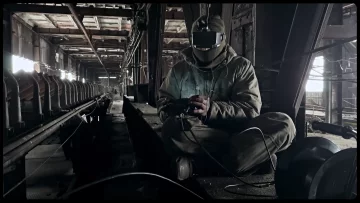"Drones have revolutionized military affairs": expert explains why it is difficult to shoot down drones

Military expert Oleg Starikov explained that it is difficult to shoot down enemy shaheeds in Ukrainian cities because of their altitude and speed, because it is literally a revolution in war, like gunpowder or a tank, Politeka reports.
He spoke about this on his channel.
Firstly, the expert notes, shaheeds are not cruise or ballistic missiles, and fighting in low air was not included in any military doctrines of any countries or military organizations in the world, no one was ready to counter an aircraft of this class. So, he states, there is no appropriate weaponry to destroy these drones, which fly at the speed of a corncob.
"And they fly very low above the ground - 100-200 m. And the earth is round, it is not flat. And how does a radar beam work? Depending on the curvature of the earth, on what kind of terrain. The beam does not see, the Shahed arrives, and the beam simply does not have time to capture him. And therefore, mobile air defense groups jump out and begin to work in the city. But, in principle, according to all standards, according to all rules, all this should be on the approach to a populated area or to an object that is being protected," says Oleg Starikov.
In addition, the expert notes, the Russians are changing the Shahed control system, now they have already begun to use GPS navigation, and some drones even take our mobile networks. In this case, he reasons, either turn off all mobile communications in the city, or jam them with electronic warfare, but it is unknown what else this will lead to.
"Therefore, the situation is serious, and it is connected, again, with the fact that drones have revolutionized military affairs. This is the same revolution as when gunpowder was invented and it began to be used in military affairs. Knights in armor ran, they couldn't be penetrated by arrows, but they could be penetrated by firearms. Or like tanks in World War I. So, in the near future, of course, they will find (ed. - a way to counteract drones), but it won't happen quickly," explains Oleg Starikov.
Latest news:
Let's remember Politeka wrote, War in Ukraine: expert talks about the problems of the Russian army and the situation on the front.
Politeka also informed, The Armed Forces of Ukraine have begun to create "drone lines" with a 50-kilometer strike zone: Russian troops will not be able to launch offensives.
In addition, Politeka informed, Trump changes strategy: expert reveals how the US will achieve peace in Ukraine.